EMS Electrical Services were brought on board to implement a site wide machine safety overhaul at a Thermo Fisher Scientific manufacturing facility in East Tamaki Auckland.
The Thermo Fisher Scientific manufacturing facility in East Tamaki, Auckland is responsible for producing “lab plasticware and supplies”, as well as “sample storage and management”.
The facility is made up of plastic injection moulding machines, assembling and packaging machinery, labelling and capping machinery, raw materials storage as well as market ready product storage.
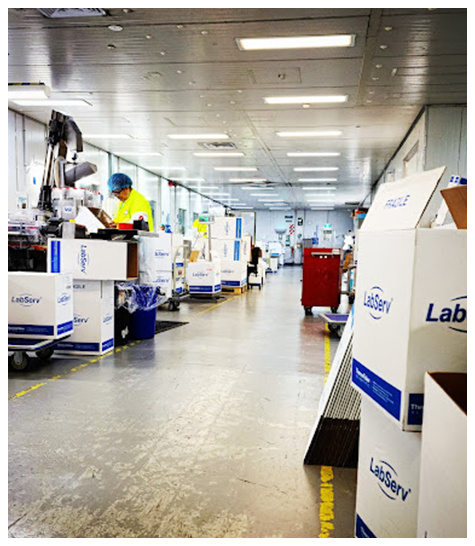
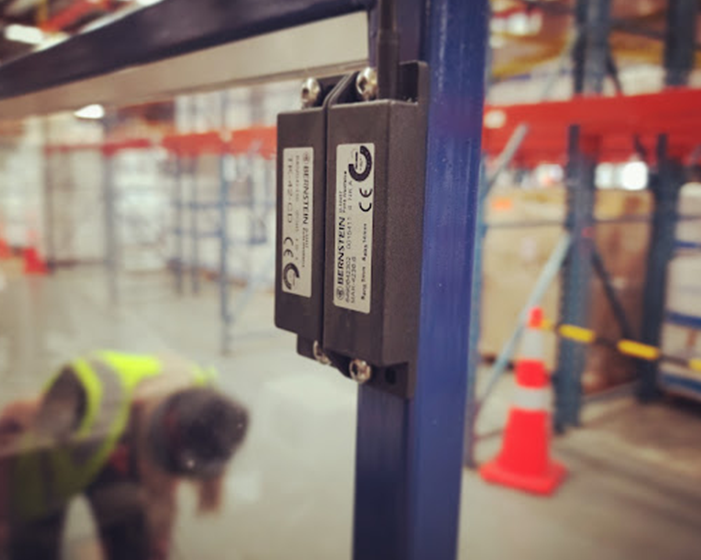
The facility has been operating for many years, supplying customers from all over the world with quality plasticware products. Thermo Fisher Scientific faced an immediate problem with safety, some of the machinery has been designed and built in-house, and some machinery is just old fashioned. That being said, the machinery is still good for production, but a lot has changed in regards to safety over the years, and Thermo Fisher Scientific realised they needed to act to bring the old machines in line with modern day safety standards.
Thermo Fisher Scientific has been a happy customer of EMS Electrical Services and did not hesitate to contact us to see if we could help implement the installation of machine safety devices and any other safety related equipment.
Internal and external safety evaluations raised concerns around machine safety and general plant safety.
The planning stage was challenging. Our team had a large list of objectives to sort and prioritise based on critical safety ratings.
To reduce manufacturing interruptions, strong attack plans were devised, this came down to effective timing and communication.
Educating staff on new safety features and changes proved challenging, language barriers, rotating shifts and contracted staff were great barriers.
We embedded our team amongst the maintenance staff and high level management to form an attack plan, our first focus point was prioritising the work that needed to be done by formulating a safety risk factor rating, and categorising unsafe machinery into an actionable work schedule. We held regular safety meetings once weekly to discuss updates and evaluations of the schedule.
A well thought out work schedule is important, it allows good timing for parts ordering, planning and design and also gives production managers good notice as to when certain machines will be offline to be worked on.
There were a total of 45 sub projects each consisting of a number of machines that needed attention. The project ran for a total of 6 months.
Some of the work we completed was the installation of new machine controls, machine safety gate switches, safety compressed air dump valves, safety relays and emergency stop buttons and circuits. We also conducted a number of our own electrical safety reports after discovering a number of faults on some machinery, these faults were brought to the attention of the project manager, and it was then requested we provide thorough reports that involved extensive inspections of most of the machinery on site. We documented, sorted and provided these reports to Thermo Fisher Scientific which then led to a parallel project being formed to remedy these issues.
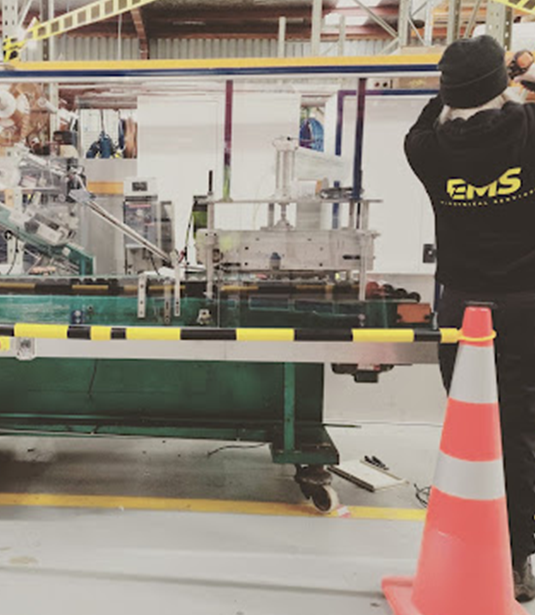
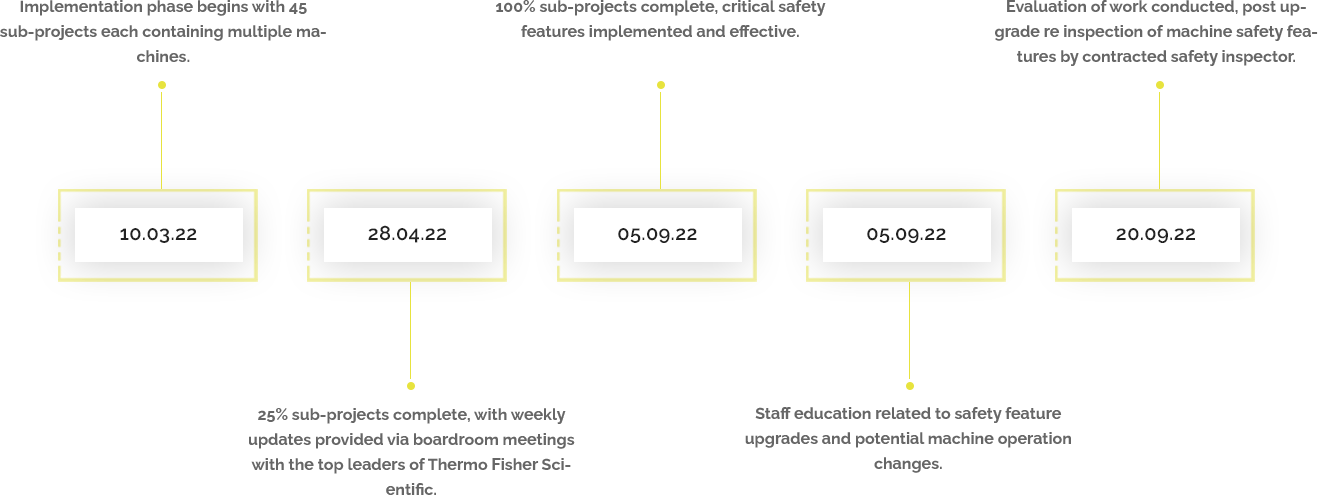

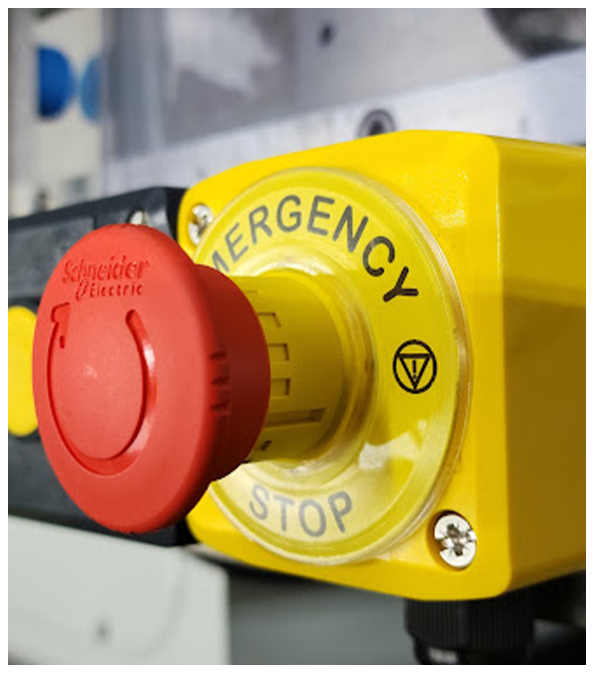
Some of the problems we faced during both projects were changes to the machinery which caused staff to need further training to familiarise themselves with the new safety procedures and changes.
The addition of safety devices meant that some machines needed rewiring or reconfiguring which added delays to the project.
We had a supply issue during this time as Covid 19 had a big impact on the availability of electrical products at our suppliers.
Covid 19 was rampant at this time, Thermo Fisher Scientific experienced the spread of the virus throughout the facility, which led to several short term closures, which impacted the project timeline.
We nailed it! EMS Electrical Services successfully completed the project on 20.09.22 with a re-inspection by the safety inspector passing everything that required attention, not only that, the inspector was highly impressed with the improvements we had made and said we had gone above and beyond to ensure the safety of the staff at Thermo Fisher Scientific.
The staff showed great patience during this time, but also showed great gratitude once the improvements were shown to keep them safe at the workplace so they can go home at the end of the day without incident.
Partner with the experts in emerging technology and automated equipment for your next project.
All Rights Reserved | Designed by